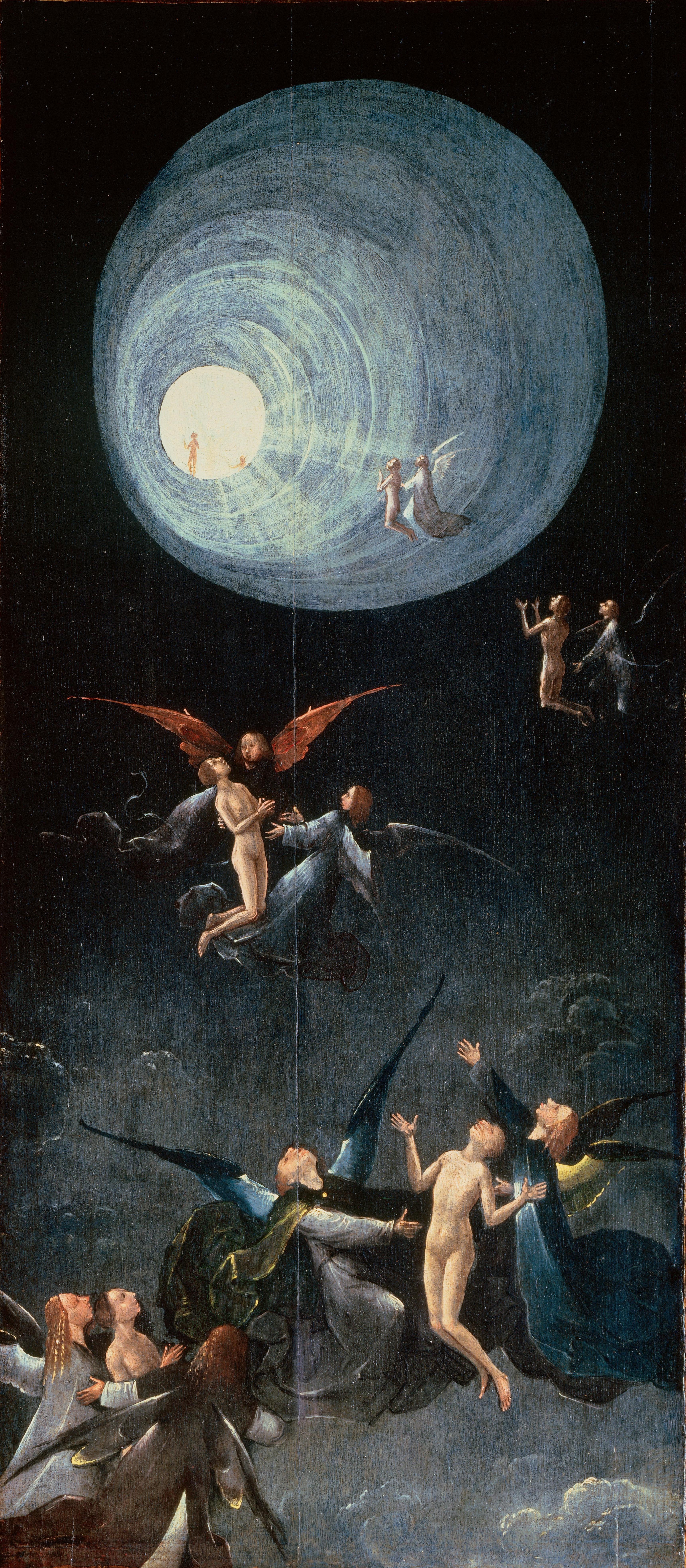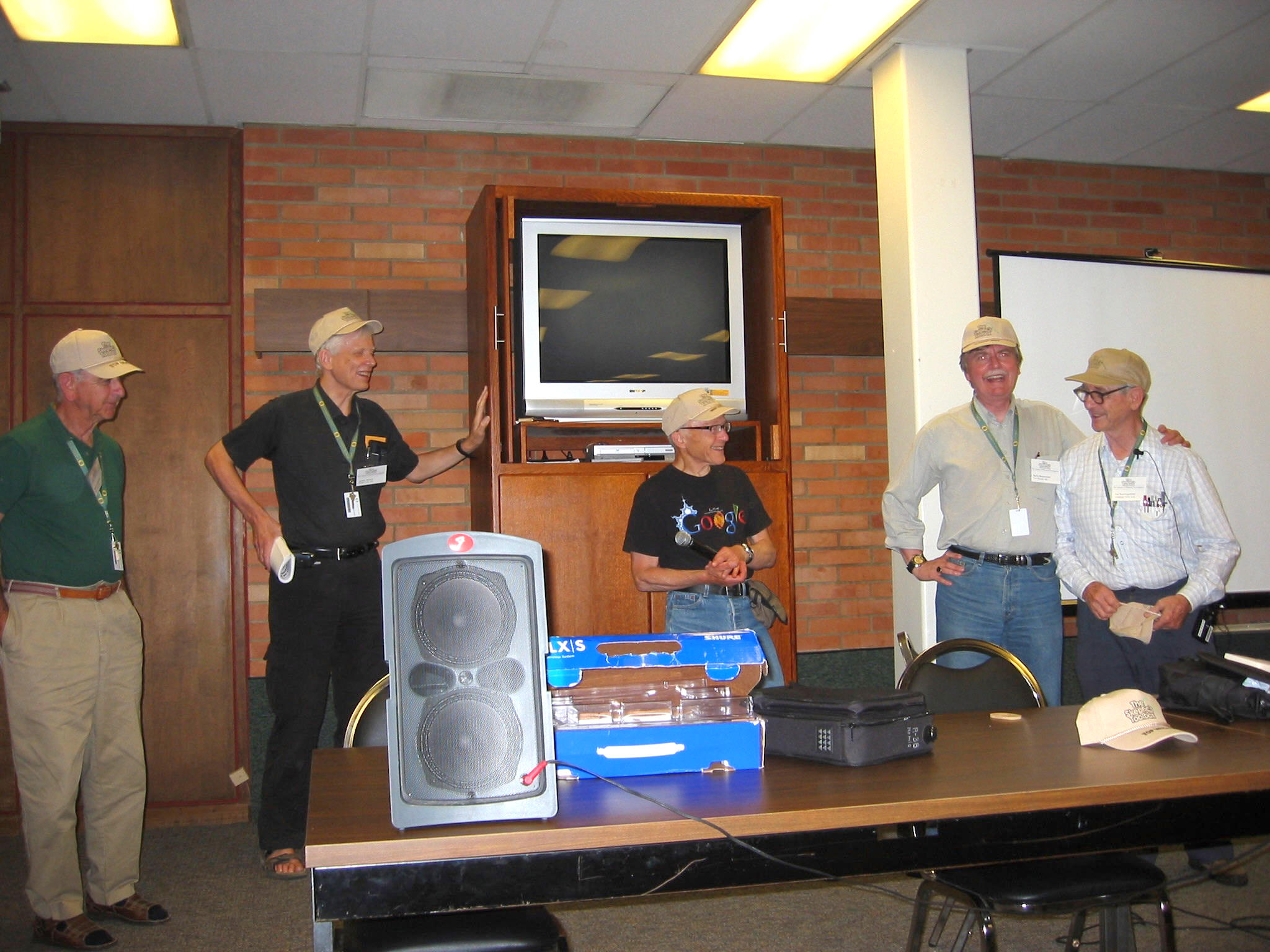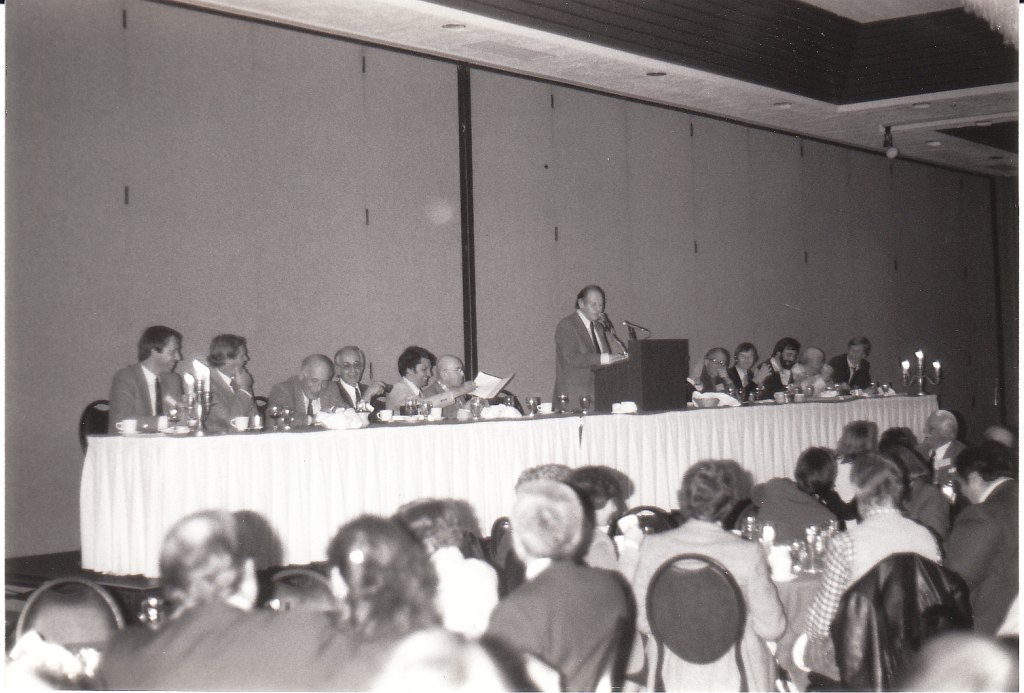|
Life After Life (Moody Book)
''Life After Life'' is a 1975 book written by psychiatrist Raymond Moody. It is a report on a Qualitative research, qualitative study in which Moody interviewed 150 people who had undergone near-death experiences (NDEs). The book presents the author's composite account of what it is like to die, supplemented with individual accounts. On the basis of his collection of cases, Moody identified a common set of elements in NDEs: *(a) an overwhelming feeling of peace and well-being, including freedom from pain. *(b) the impression of being located outside one's physical body. *(c) floating or drifting through darkness, sometimes described as a tunnel. *(d) becoming aware of a golden light. *(e) encountering and perhaps communicating with a "being of light". *(f) having a rapid succession of visual images of one's past. *(g) experiencing another world of much beauty.Harvey J. Irwin and Caroline WattAn introduction to parapsychologyMcFarland, 2007, p. 159. ''Life After Life'' sold more t ... [...More Info...] [...Related Items...] OR: [Wikipedia] [Google] [Baidu] |
Raymond Moody
Raymond A. Moody Jr. (born June 30, 1944) is an American philosopher, psychiatrist, physician and author, most widely known for his books about afterlife and near-death experiences (NDE), a term that he coined in 1975 in his best-selling book '' Life After Life''. His research purports to explore what happens when a person dies. He has widely published his views on what he terms near-death-experience psychology. Early life and education Moody was born in Porterdale, Georgia, the son of an agnostic surgeon. He earned a BA (1966), an M.A. (1967) and a PhD (1969) in philosophy from the University of Virginia. He also obtained a PhD in psychology from the University of West Georgia, then known as West Georgia College, where he later became a professor in the topic. In 1976, he received an M.D. from the Medical College of Georgia. Career Early career After obtaining his M.D., Moody worked as a forensic psychiatrist in a maximum-security Georgia state hospital. In 1998, Moody was ... [...More Info...] [...Related Items...] OR: [Wikipedia] [Google] [Baidu] |
Psychiatrist
A psychiatrist is a physician who specializes in psychiatry, the branch of medicine devoted to the diagnosis, prevention, study, and treatment of mental disorders. Psychiatrists are physicians and evaluate patients to determine whether their symptoms are the result of a physical illness, a combination of physical and mental ailments or strictly mental issues. Sometimes a psychiatrist works within a multi-disciplinary team, which may comprise Clinical psychology, clinical psychologists, Social work, social workers, Occupational therapist, occupational therapists, and Nursing, nursing staff. Psychiatrists have broad training in a Biopsychosocial model, biopsychosocial approach to the assessment and management of mental illness. As part of the clinical assessment process, psychiatrists may employ a mental status examination; a physical examination; brain imaging such as a computerized tomography, magnetic resonance imaging, or positron emission tomography scan; and blood testing. P ... [...More Info...] [...Related Items...] OR: [Wikipedia] [Google] [Baidu] |
Qualitative Research
Qualitative research is a type of research that aims to gather and analyse non-numerical (descriptive) data in order to gain an understanding of individuals' social reality, including understanding their attitudes, beliefs, and motivation. This type of research typically involves in-depth interviews, focus groups, or observations in order to collect data that is rich in detail and context. Qualitative research is often used to explore complex phenomena or to gain insight into people's experiences and perspectives on a particular topic. It is particularly useful when researchers want to understand the meaning that people attach to their experiences or when they want to uncover the underlying reasons for people's behavior. Qualitative methods include ethnography, grounded theory, discourse analysis, and interpretative phenomenological analysis. Qualitative research methods have been used in sociology, anthropology, political science, psychology, social work, folklore, educational r ... [...More Info...] [...Related Items...] OR: [Wikipedia] [Google] [Baidu] |
Near-death Experience
A near-death experience (NDE) is a profound personal experience associated with death or impending death which researchers claim share similar characteristics. When positive, such experiences may encompass a variety of sensations including detachment from the body, feelings of levitation, total serenity, security, warmth, the experience of absolute dissolution, and the presence of a light. When negative, such experiences may include sensations of anguish, distress, a void, devastation, and vast emptiness. People often report seeing hellish places and things like their own rendition of "the devil." Explanations for NDEs vary from scientific to religious. Neuroscience research hypothesizes that an NDE is a subjective phenomenon resulting from "disturbed bodily multisensory integration" that occurs during life-threatening events. Some transcendental and religious beliefs about an afterlife include descriptions similar to NDEs. In the U.S., an estimated 9 million people have repo ... [...More Info...] [...Related Items...] OR: [Wikipedia] [Google] [Baidu] |
Clifton D
Clifton may refer to: People *Clifton (surname) *Clifton (given name) Places Australia *Clifton, Queensland, a town **Shire of Clifton *Clifton, New South Wales, a suburb of Wollongong *Clifton, Western Australia Canada *Clifton, Nova Scotia, a rural community *Clifton, a former name of New London, Prince Edward Island *Clifton, a former name of Niagara Falls England *Clifton, Bedfordshire *Clifton, Bristol, a suburb **Clifton Suspension Bridge * Clifton, Cheshire, a location *Clifton, Cumbria, village near Penrith *Great Clifton, Cumbria *Little Clifton, Cumbria *Clifton, Derbyshire * Clifton, Devon, a location *Clifton, Doncaster, village in the borough of Doncaster, South Yorkshire *Clifton, Greater Manchester, in the City of Salford *Clifton, Lancashire, village west of Preston *Clifton, Northumberland, a hamlet *Clifton, Nottinghamshire, near Nottingham *North Clifton, Nottinghamshire *South Clifton, Nottinghamshire * Clifton, Harrogate, North Yorkshire *Clifton, York, a ... [...More Info...] [...Related Items...] OR: [Wikipedia] [Google] [Baidu] |
Near-death Studies
Near-death studies is a field of psychology and psychiatry that studies the physiology, phenomenology and after-effects of the near-death experience (NDE). The field was originally associated with a distinct group of North American researchers that followed up on the initial work of Raymond Moody, and who later established the International Association for Near-death Studies (IANDS) and the ''Journal of Near-Death Studies''. Since then the field has expanded, and now includes contributions from a wide range of researchers and commentators worldwide. Near-death experience The near-death experience is an experience reported by people who have come close to dying in a medical or non-medical setting. The aspect of trauma, and physical crises, is also recognized as an indicator for the phenomenon.Sommers MS. "The near-death experience following multiple trauma". ''Crit Care Nurse''. 1994 Apr;14(2): 62–66. According to Linda J. GriffithGriffith, Linda J. "Near-Death Experiences and Psy ... [...More Info...] [...Related Items...] OR: [Wikipedia] [Google] [Baidu] |
Afterlife
The afterlife (also referred to as life after death) is a purported existence in which the essential part of an individual's identity or their stream of consciousness continues to live after the death of their physical body. The surviving essential aspect varies between belief systems; it may be some partial element, or the entire soul or spirit of an individual, which carries with it and may confer personal identity or, on the contrary, nirvana. Belief in an afterlife is in contrast to the belief in oblivion after death. In some views, this continued existence takes place in a spiritual realm, while in others, the individual may be reborn into this world and begin the life cycle over again, likely with no memory of what they have done in the past. In this latter view, such rebirths and deaths may take place over and over again continuously until the individual gains entry to a spiritual realm or otherworld. Major views on the afterlife derive from religion, esotericism an ... [...More Info...] [...Related Items...] OR: [Wikipedia] [Google] [Baidu] |
Barry Beyerstein
Barry L Beyerstein (May 19, 1947 – June 25, 2007) was a scientific skeptic and professor of psychology at Simon Fraser University in Burnaby, British Columbia. Beyerstein's research explored brain mechanisms of perception and consciousness, the effects of drugs on the brain and mind, sense of smell and its lesser-known contributions to human cognition and emotion. He was founder and chair of the BC Skeptics Society, a Fellow and member of the Executive Council of the Committee for the Scientific Investigation of Claims of the Paranormal (CSICOP), now known as the Committee for Skeptical Inquiry. Associate editor of the '' Scientific Review of Alternative Medicine'' Journal as well as a contributor to ''Skeptical Inquirer'', Beyerstein was one of the original faculty of CSICOP's Skeptic's Toolbox. Beyerstein was a co-founder of the Canadians for Rational Health Policy and a member of the advisory board of the Drug Policy Foundation of Washington D.C. He was a founding board me ... [...More Info...] [...Related Items...] OR: [Wikipedia] [Google] [Baidu] |
Kendrick Frazier
Kendrick Crosby Frazier (March 19, 1942 – November 7, 2022) was an American science writer and longtime editor of ''Skeptical Inquirer'' magazine. He was also a former editor of '' Science News'', author or editor of ten books, and a Fellow of the American Association for the Advancement of Science (AAAS). He was a fellow and a member of the executive council of Committee for Skeptical Inquiry (CSI), an international organization which promotes scientific inquiry. Frazier wrote extensively about a variety of science topics including astronomy, space exploration, the earth and planetary sciences, archaeology, technology, the history and philosophy of science, public issues of science, and the critical examination of pseudoscience and fringe science. Personal life Frazier received a B.A. in Journalism from the University of Colorado and a M.S. in Journalism from Columbia University. He was a member of the National Association of Science Writers and the American Geophysical Un ... [...More Info...] [...Related Items...] OR: [Wikipedia] [Google] [Baidu] |
James Alcock
James E. Alcock (born 24 December 1942) is a Canadian educator. He has been a Professor of Psychology at York University (Canada) since 1973. Alcock is a noted critic of parapsychology and is a Fellow and Member of the Executive Council for the Committee for Skeptical Inquiry. He is a member of the Editorial Board of ''The Skeptical Inquirer'', and a frequent contributor to the magazine. He has also been a columnist for ''Humanist Perspectives'' Magazine. In 1999, a panel of skeptics named him among the two dozen most outstanding skeptics of the 20th century. In May 2004, CSICOP awarded Alcock CSI's highest honor, the In Praise of Reason Award. Alcock is also an amateur magician and is a member of the International Brotherhood of Magicians. As of 2020, he is currently on leave from York University. Early life Alcock has stated that he grew up in an observant Protestant household and regularly went to Sunday school. His mother was "very religious" and his father, though not out ... [...More Info...] [...Related Items...] OR: [Wikipedia] [Google] [Baidu] |
Paul Kurtz
Paul Kurtz (December 21, 1925 – October 20, 2012) was an American scientific skeptic and Secular humanism, secular humanist. He has been called "the father of secular humanism". He was Professor Emeritus of Philosophy at the University at Buffalo, The State University of New York, State University of New York at Buffalo, having previously also taught at Vassar, Trinity, and Union colleges, and the New School for Social Research. Kurtz founded the publishing house Prometheus Books in 1969. He was also the founder and past chairman of the Committee for Skeptical Inquiry (CSI, formerly the ''Committee for the Scientific Investigation of Claims of the Paranormal'', CSICOP), the Council for Secular Humanism, and the Center for Inquiry. He was editor in chief of ''Free Inquiry'' magazine, a publication of the Council for Secular Humanism. He was co-chair of the International Humanist and Ethical Union (IHEU) from 1986 to 1994. He was a Fellow of the American Association for the Adva ... [...More Info...] [...Related Items...] OR: [Wikipedia] [Google] [Baidu] |
1975 Non-fiction Books
It was also declared the ''International Women's Year'' by the United Nations and the European Architectural Heritage Year by the Council of Europe. Events January * January 1 - Watergate scandal (United States): John N. Mitchell, H. R. Haldeman and John Ehrlichman are found guilty of the Watergate cover-up. * January 2 ** The Federal Rules of Evidence are approved by the United States Congress. ** Bangladesh revolutionary leader Siraj Sikder is killed by police while in custody. ** A bomb blast at Samastipur, Bihar, India, fatally wounds Lalit Narayan Mishra, Minister of Railways. * January 5 – Tasman Bridge disaster: The Tasman Bridge in Hobart, Tasmania, Australia, is struck by the bulk ore carrier , killing 12 people. * January 7 – OPEC agrees to raise crude oil prices by 10%. * January 10–February 9 – The flight of ''Soyuz 17'' with the crew of Georgy Grechko and Aleksei Gubarev aboard the ''Salyut 4'' space station. * January 15 – Alvor Agreement: Portugal an ... [...More Info...] [...Related Items...] OR: [Wikipedia] [Google] [Baidu] |







